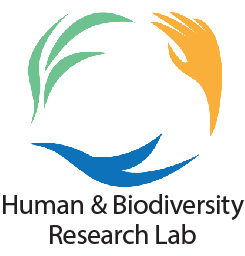About
One of the biggest challenges of our globalized world is how rapidly we, humans, are eroding the natural world surrounding us to support our growing populations and economies. Yet, nature provides us with many benefits, not least of which our health and wellbeing. Therefore, safeguarding the natural world surrounding us is one of the key contemporary issues of humanity.
HUB is a research group led by Assoc. Professor Assaf Shwartz at the Landscape Architecture Program, Faculty of Architecture and Town Planning, Technion. Our research adopts a socio-ecological approach to propose design solutions, management or outreach activities that can help achieve a balance between biodiversity conservation, economic development and social wellbeing. We focus on human-dominated ecosystems, notably, urban and agricultural, and study humans as integral part of ecosystems by identifying nature-based solutions that integrate the answers of the following key questions:
-
What are the processes/consequences of human actions on biodiversity and ecosystem services?
-
What can be done to mitigate the detrimental impacts of human activities on the natural environment?
-
How can nature conservation benefit various stakeholders?
Our research is interdisciplinary by nature and spans the fields of urban ecology, conservation psychology, agro-ecology, conservation planning and invasion biology. We work on pure and applied topics, mostly at local to landscape scales, with a strong emphasis on empirical and field work using cutting edge technologies (e.g. eye tacking, 3D immersive theater) and developing novel methodologies (e.g. Virtual Garden).
HUB is a dynamic and young research group, established in 2014, and publishing in leading conservation and environmental journals including Conservation Letters, Conservation Biology, Global Environmental Change, Biological Conservation, BioScience, Diversity and Distribution etc. Our main topics of interest currently include:
-
Creating meaningful experiences of nature and averting the extinction of experience.
-
Identifying the components of nature that benefit people and the required dosage of these components needed to achieve wellbeing, as a mean to plan sustainable cities.
-
Scaling up from protected areas: planning and managing agricultural areas as ecological corridors and optimizing the use of wildlife crossing.
-
Finding the balance between recreation activities in nature and their ecological impacts: The design of campsites in the Negev desert as a case study.
-
Making a difference: working at the science-policy interface for managing biological invasions and promoting cost-efficient and biodiversity-friendly agriculture policy.
If you are interested in pushing the boundaries of traditional conservation science and are motivated by empirical work, have a browse through our website to see what we do and feel free to contact us.

